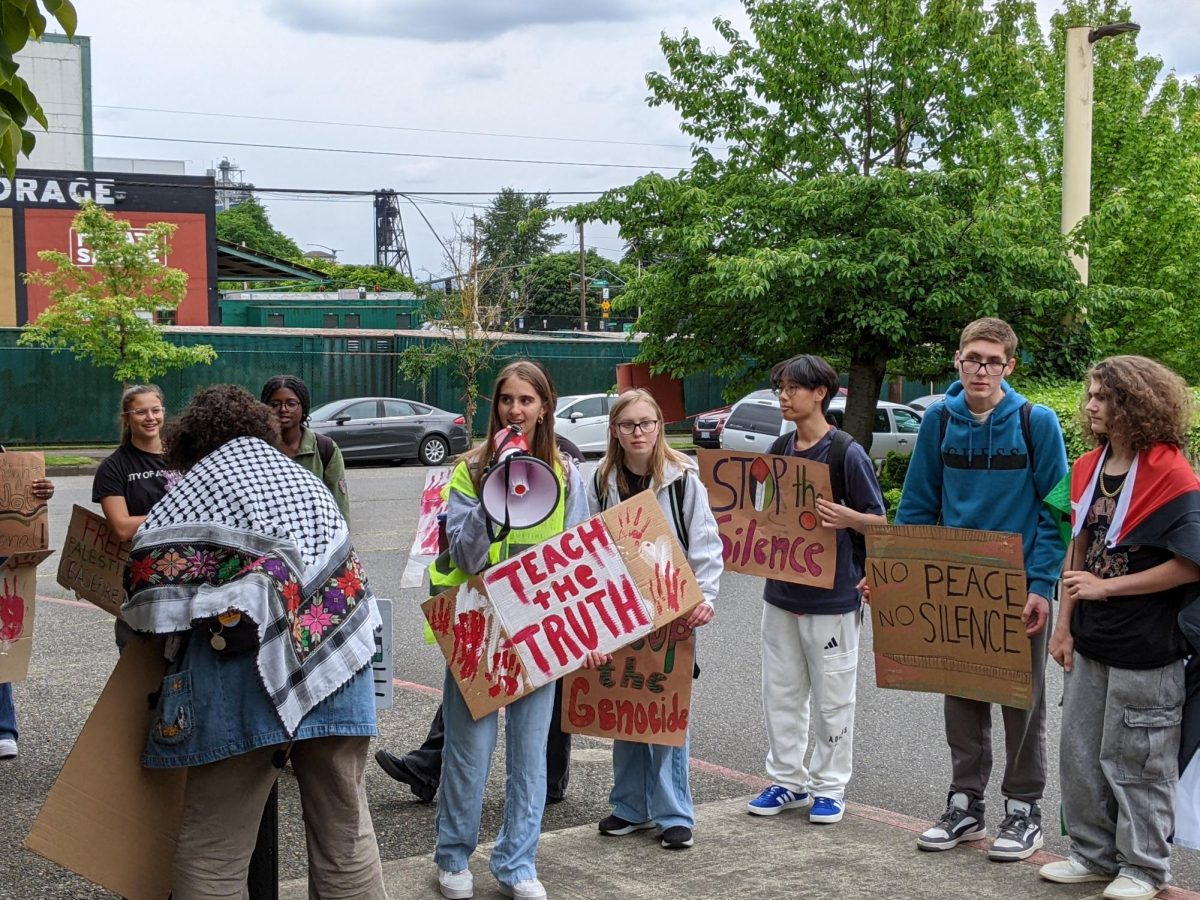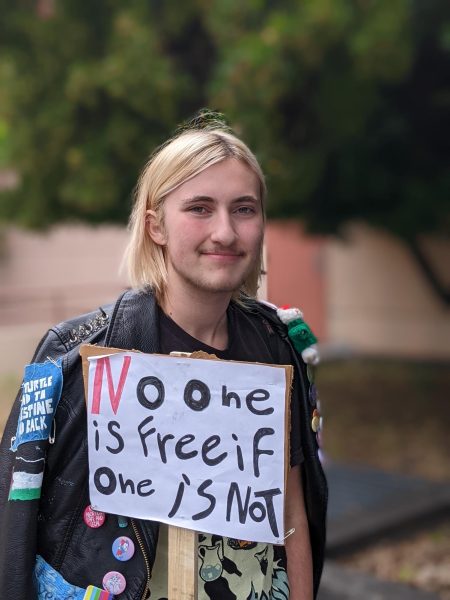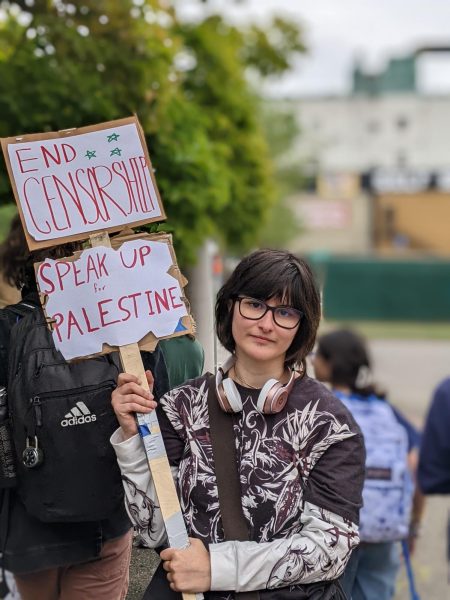
Eliot Logan
Students stand in a circle, listening to speakers share their perspectives on the Israel-Hamas war and Portland Public Schools.
“From Portland to Palestine, all kids deserve to thrive!” echo the chants across the parking lot of the Dr. Matthew Prophet Education Center, where the Portland Public Schools (PPS) headquarters is located. At around 2:00 p.m. on May 15, a small group of PPS high school students gathered for a protest.
These students were challenging a recent administrative directive adopted by PPS which states that teachers are not allowed to display their personal or political views through classroom visuals.
 In recent years, teachers from across the district, including Grant High School, have hung up flags and posters in their classrooms which support Palestine in the Israel-Hamas war. The directive has garnered controversy after multiple instances of these decorations being taken down by school administrators. While PPS says that the directive is “content neutral,” some claim that it is being enforced exclusively to censor teachers speaking out in support of Palestine. “What we’re trying to accomplish here is to get PPS to take a stand against genocide,” says Connor Jacobsen, the president of Benson High School’s Activism Club.
In recent years, teachers from across the district, including Grant High School, have hung up flags and posters in their classrooms which support Palestine in the Israel-Hamas war. The directive has garnered controversy after multiple instances of these decorations being taken down by school administrators. While PPS says that the directive is “content neutral,” some claim that it is being enforced exclusively to censor teachers speaking out in support of Palestine. “What we’re trying to accomplish here is to get PPS to take a stand against genocide,” says Connor Jacobsen, the president of Benson High School’s Activism Club.
A previous walkout in March 2024 similarly demanded that PPS make a public statement “openly condemning the ongoing genocide in Gaza,” a request that would not be fulfilled.
“I got involved in this because I saw the silence of everyone around me not talking about Palestine, and I wanted to speak out for those who didn’t have a voice,” says Hana, the lead organizer of the walkout who requested to be referred to by only her first name. “As a Palestinian,” she says, “I felt my people were left out of conversations and I wanted a voice in the district.”
While the turnout this year was far from the over 300 students who attended in 2024, Hana hopes that their protest will convince PPS to allow for the support of Palestine in classrooms.
“I’m very happy with the result,” she says, “especially because we got so many different speakers … A lot of different people from different backgrounds and different schools all came together.”